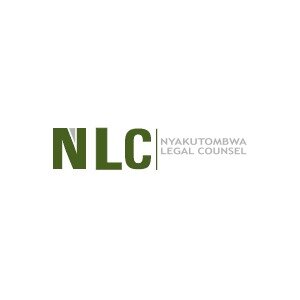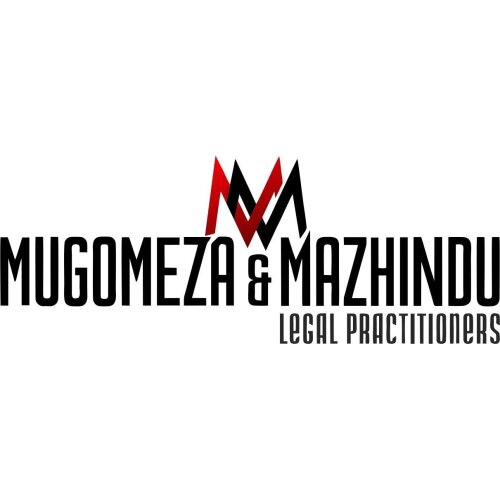Best Tax Lawyers in Harare
Share your needs with us, get contacted by law firms.
Free. Takes 2 min.
List of the best lawyers in Harare, Zimbabwe
About Tax Law in Harare, Zimbabwe
Tax law in Harare, Zimbabwe, comprises the rules and regulations governing how taxes are collected and managed by the government. The Zimbabwe Revenue Authority (ZIMRA) is the principal body responsible for tax collection and administration. Zimbabwe's tax system includes a variety of taxes, such as income tax, value-added tax (VAT), capital gains tax, customs and excise duties, and other levies. These taxes are essential for funding public services and infrastructure development across the country.
Why You May Need a Lawyer
There are several scenarios where individuals or businesses in Harare might require the expertise of a tax lawyer. Common situations include:
- Handling complex tax matters and compliance issues.
- Responding to audits or investigations by ZIMRA.
- Disputing tax assessments or penalties.
- Seeking advice on tax planning and management to optimize liabilities.
- Addressing international tax issues for businesses with cross-border transactions.
- Navigating the tax implications of business restructuring or mergers.
- Filing for tax exemptions or incentives offered by the government.
Local Laws Overview
In Zimbabwe, the Income Tax Act is the primary legislation governing the taxation of income. This Act, along with regulations concerning VAT, provides the framework for tax liabilities and compliance. Key aspects of local tax laws include:
- Income Tax: Imposed on income derived from virtually all sources, including employment, business, and property. Rates vary depending on the income bracket.
- VAT: A consumption tax applied at every stage of the supply chain, with the standard rate set at a specific percentage unless exemptions apply.
- Capital Gains Tax: Levied on profits from the disposal of assets. The rate differs depending on the nature of the asset and the holding period.
- PAYE (Pay As You Earn): Employers must deduct and remit taxes from employee earnings monthly.
- Customs and Excise Duties: Apply to imported goods, with rates dependent on the type of goods and their value.
Frequently Asked Questions
What is the process for registering for tax in Zimbabwe?
Individuals and businesses must apply for a tax identification number (TIN) to register for tax purposes. This can be done through the ZIMRA portal or in-person at their offices.
How is personal income tax calculated in Zimbabwe?
Personal income tax is calculated based on a progressive tax rate structure, where higher income categories are subject to higher rates. The tax is deducted at source by employers as per the PAYE system.
What are the penalties for late tax payments?
Late tax payments attract penalties and interest charges, which are calculated based on the amount due and the duration of the delay.
How can I dispute a tax assessment by ZIMRA?
You can file an objection with ZIMRA, outlining the reasons for disputing the assessment. It’s advisable to seek legal counsel to ensure your objection is valid and well-documented.
Are there any tax incentives for businesses in Zimbabwe?
Yes, there are several incentives, including tax holidays for new investments in certain sectors, accelerated depreciation rates, and deductions for research and development.
What records do I need to keep for tax purposes?
Businesses and individuals should maintain accurate records of all financial transactions, invoices, receipts, and any other documentation related to income and expenses for at least six years.
Can I pay taxes online in Zimbabwe?
Yes, ZIMRA offers online payment options through its e-services platform. Taxpayers can also use mobile payment systems integrated with ZIMRA's collection framework.
What happens if I fail to file my taxes?
Failure to file taxes can result in fines, penalties, and legal action by ZIMRA. It's important to file returns on time to avoid these consequences.
Do foreign nationals have to pay taxes in Zimbabwe?
Foreign nationals may be subject to tax on income earned in Zimbabwe. Tax obligations depend on residency status and source of income.
How does double taxation work in Zimbabwe?
Zimbabwe has entered into double taxation agreements with several countries to prevent the same income from being taxed in both jurisdictions. These agreements provide relief through credits or exemptions.
Additional Resources
For further assistance and information on tax-related matters, you can reach out to these resources:
- Zimbabwe Revenue Authority (ZIMRA): The main body responsible for revenue collection and tax administration.
- Ministry of Finance and Economic Development: Offers insights into economic policies and tax regulations.
- Institute of Chartered Accountants of Zimbabwe (ICAZ): A body of professional accountants that provides standards and guidance on financial reporting and tax.
- Local Law Firms: Specialized tax law firms in Harare can offer personalized legal advice and services.
Next Steps
If you require legal assistance regarding tax issues, consider these steps:
- Conduct initial research to understand your specific tax issue.
- Compile all relevant documentation, including financial records and correspondences with tax authorities.
- Consult a reputable tax lawyer or law firm in Harare with expertise in Zimbabwean tax law.
- Discuss your situation, including details of the issue and desired outcomes, during the initial consultation.
- Follow the legal counsel's advice to navigate your tax matter efficiently, ensuring all compliance requirements are met.
Lawzana helps you find the best lawyers and law firms in Harare through a curated and pre-screened list of qualified legal professionals. Our platform offers rankings and detailed profiles of attorneys and law firms, allowing you to compare based on practice areas, including Tax, experience, and client feedback.
Each profile includes a description of the firm's areas of practice, client reviews, team members and partners, year of establishment, spoken languages, office locations, contact information, social media presence, and any published articles or resources. Most firms on our platform speak English and are experienced in both local and international legal matters.
Get a quote from top-rated law firms in Harare, Zimbabwe — quickly, securely, and without unnecessary hassle.
Disclaimer:
The information provided on this page is for general informational purposes only and does not constitute legal advice. While we strive to ensure the accuracy and relevance of the content, legal information may change over time, and interpretations of the law can vary. You should always consult with a qualified legal professional for advice specific to your situation.
We disclaim all liability for actions taken or not taken based on the content of this page. If you believe any information is incorrect or outdated, please contact us, and we will review and update it where appropriate.
















